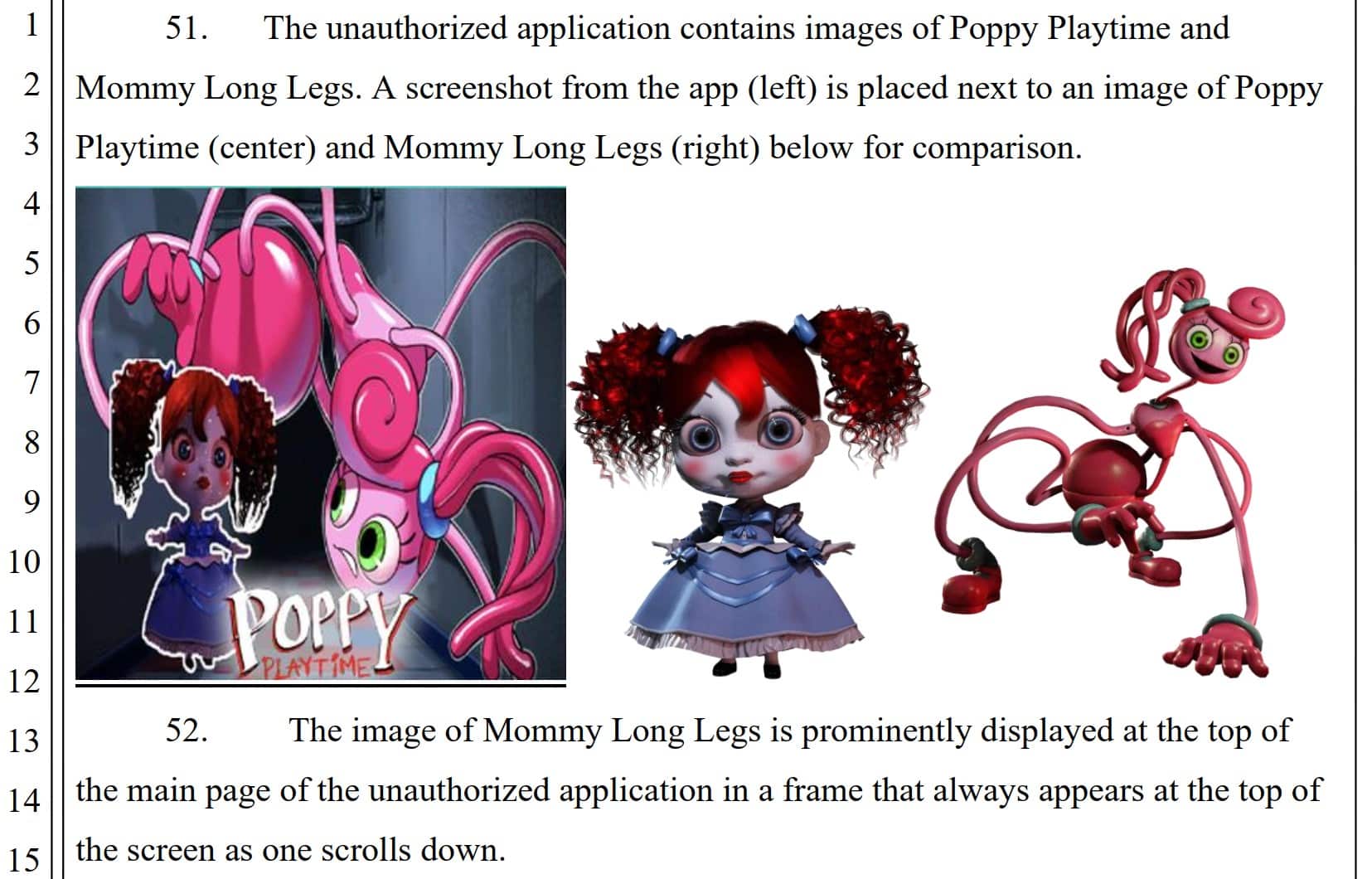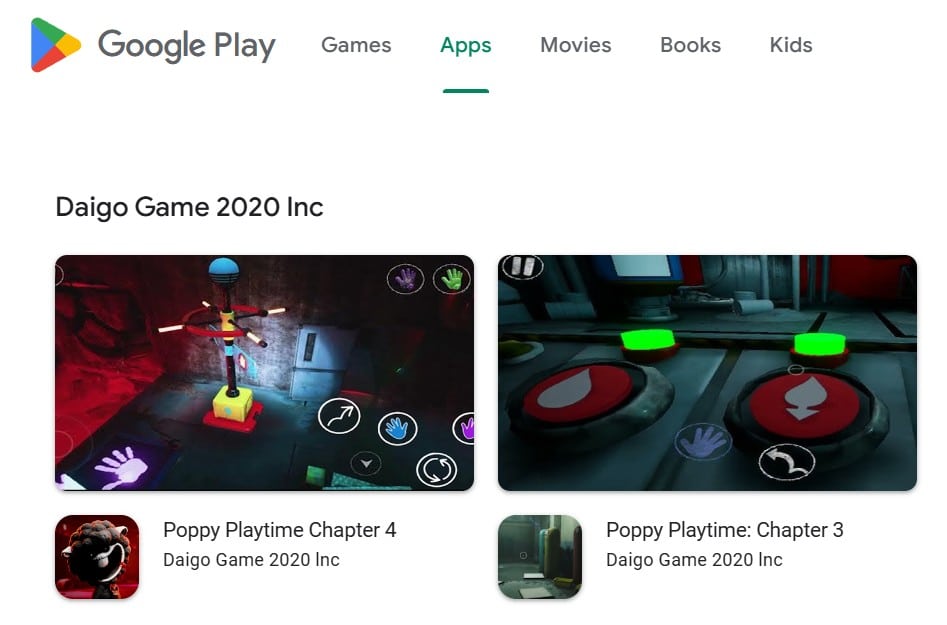 With 40 million players worldwide and over a billion views on YouTube, the Poppy Playtime game series has gained a massive following.
With 40 million players worldwide and over a billion views on YouTube, the Poppy Playtime game series has gained a massive following.
Created by the American indie game studio Mob Entertainment, the game is particularly popular among fans of horror games and online content creators. A planned Poppy Playtime live action movie will only add to this lure.
Poppy Playtime’s success hasn’t gone unnoticed. As is often the case, popular games serve as inspiration for other developers. That’s fine, but when others use the same brand and content to attract users, a line is clearly being crossed.
‘Copyright Infringing Scam Apps’
According to Mob Entertainment, this is precisely what happened on Google Play. In a new lawsuit filed at a federal court in California, Poppy Playtime’s creators accuse developer ‘Daigo Game 2020, Inc’ of releasing ‘scam’ applications on Google Play.
The unauthorized games versions were advertised as “Poppy Playtime: Chapter 3” and “Poppy Playtime: Chapter 4” and allegedly contain many works protected by Mob Entertainment’s copyright. The comparison below does indeed show striking similarities.

Poppy Playtime’s developer notes that these knockoff games confused many thousands of players, not least due to ‘Chapter 3’ and ‘Chapter 4’ bring uploaded to Google Play before these versions were officially released.
Aside from using Poppy Playtime’s name, logo, and characters, the ‘scam’ apps offer very little to the user. The complaint notes that the app is not a game at all. Instead, it asks users to pay $30 to $95 for the “Guide wuggy playtime mod.”
“When users pay for the “Guide wuggy playtime mod,” all they receive is a link to a dead webpage,” the complaint notes.
‘Google Play Failed to Take Apps Offline’
The complaint doesn’t just target the developers of these alleged scam apps, it also lists Google as a defendant. The plaintiffs allege that Google receives 15% or 30% of the unauthorized sales and failed to take proper action in response to DMCA notices.
Mob Entertainment says it contacted Google on various occasions, using the web-based takedown form and the email address dmca-agent@google.com. These requests to remove the allegedly infringing app didn’t yield a satisfactory result and can be summarized as follows.
– October 31, 2024: Takedown request sent for unauthorized Poppy Playtime Chapter 3 app
– November 1, 2024: Google confirms receipt
– December 5, 2024: No response, Mob Entertainment sends a follow-up
– December 9, 2024: Google responds, stating that the app will be removed
– December 9, 2024: Google removes “Poppy Playtime Chapter 3”
– December 13, 2024: “Poppy Playtime Chapter 3” returns to the Play Store (same URL)
– December 13, 2024: Mob Entertainment informs Google that the app returned
– December 16, 2024: Google confirms receipt
– December 19, 2024: Mob Entertainment sends another DMCA takedown notice
– December 19, 2024: Google asks the developer to use the web-based takedown form
– December 30, 2024: Takedown request sent for unauthorized Poppy Playtime Chapter 4
– December 30, 2024: Google confirms receipt
Mob Entertainment argues that, despite these efforts, Google did not expeditiously remove the copyright infringing applications, which are still available in the Play Store to this day.

Poppy Playtime Requests Damages
Google’s alleged inaction makes the company ineligible for DMCA safe harbor protection, the lawsuit notes. As such, it can be held liable for copyright infringement.
“Google forfeited the benefits of the DMCA’s safe harbor provision for its infringement of Mob Entertainment’s copyrighted works contained in the unauthorized ‘Poppy Playtime: Chapter 3’ and ‘Poppy Playtime Chapter 4’ applications.”
Mob Entertainment accuses Google and Daigo of both copyright and trademark infringement, and they request to be compensated. This includes potential statutory damages of $150,000 per work.
In addition, the indie game developer seeks an injunction preventing both Google and Daigo from infringing its copyrights and trademarks going forward.
—
A copy of Mob Entertainment’s complaint against Google and Daigo, filed yesterday at the California federal court, is available here (pdf). Neither defendant has responded to the lawsuit thus far.
From: TF, for the latest news on copyright battles, piracy and more.
Powered by WPeMatico
